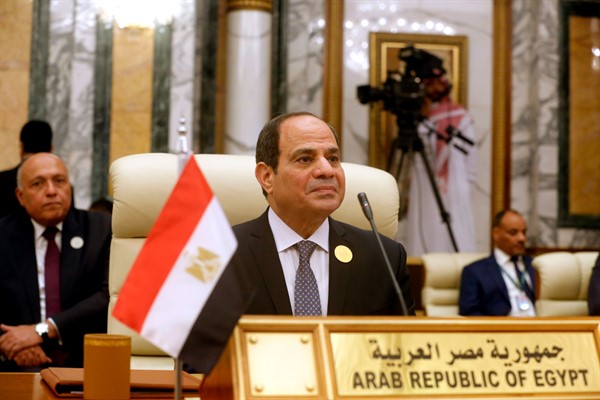Editor’s Note: Every Monday, Managing Editor Frederick Deknatel highlights a major unfolding story in the Middle East, while curating some of the best news and analysis from the region. Subscribers can adjust their newsletter settings to receive Middle East Memo by email every week.
It wasn’t ever that clear why Egypt was going along with the Saudi- and Emirati-led blockade of Qatar, beyond some well-known disagreements over the Muslim Brotherhood. After all, the blockade was ultimately an economic pressure campaign by those two very wealthy Gulf monarchies, with the help of fellow Gulf Cooperation Council member Bahrain, to isolate their smaller neighbor—cutting off trade, travel and diplomatic ties to essentially try and force Qatar to get in line.
So what did Egypt really have to do with it, away from the Gulf and with nothing like the economic leverage of Saudi Arabia or the United Arab Emirates? For the roughly 300,000 Egyptians living and working in Qatar, many in the construction industry, the blockade cut them off from home. Was President Abdel Fattah el-Sisi simply backing it because of his staunch opposition to the Muslim Brotherhood and other Islamists that Doha had supported? Or was he dutifully following his patrons in Riyadh and Abu Dhabi, who have helped fund his regime?

